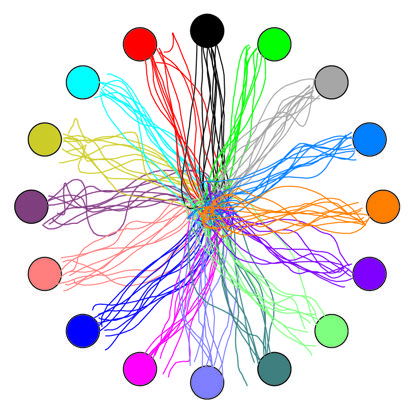
Dr. Steven M. Chase
Professor, Biomedical Engineering and Carnegie Mellon Neuroscience Institute
- Scott Hall 4N113
- 412 268 5512
- 412 268 9580
Scott Hall 4N113
Carnegie Mellon University
5000 Forbes Avenue
Pittsburgh, PA 15213
Education
- B.S. (with honors), Applied Physics, California Institute of Technology, 1997
- M.S., Electrical Engineering, University of California, Berkeley, 1999
- Ph.D., Biomedical Engineering, Johns Hopkins University, 2006
Bio
Steven Chase uses brain-computer interfaces to study motor learning and skill acquisition. His work stands to provide a better understanding of how movement information is represented in networks of neurons in the brain and will inform the development of neural prosthetics.
Chase is jointly appointed in Biomedical Engineering and the Center for the Neural Basis of Cognition, and holds courtesy appointments in Electrical and Computer Engineering and the Robotics Institute. Chase is a recipient of the National Science Foundation’s CAREER Award and the Dean’s Early Career Fellowship, and was a Wimmer Faculty Fellow in 2013-14. His work has been supported by the NIH, NSF, DARPA, IARPA, the Craig H. Neilsen Foundation, the Shurl and Kay Curci Foundation, and the Pennsylvania Department of Health.
Research
Research in the Chase lab has two main thrusts. First, we develop novel computational and experimental techniques for investigating the neural basis of motor control and motor learning. One of the major tools we use is the brain-computer interface (BCI), which allows us to tap into the output of a network of neurons and use that recorded activity to directly drive a device, like a computer cursor. We are currently investigating the neural basis of skill acquisition, motor learning transfer, and the subcortical contributions to learning. Ultimately a basic understanding of these phenomena will not only inform us about the fundamental limits of motor control processes, but will also help propel the development of new neural prosthetic devices. The second research thrust in the lab is to design new BCI decoding algorithms that enhance their performance and hasten their clinical translation. We are currently working on decoders that leverage learning to achieve better performance, as well as techniques for stabilizing neural signals to provide long-term BCI control without recalibration.
Research Interests: brain-computer interfaces; neural engineering; motor learning; motor control

Awards and Recognition
-
NSF CAREER Award ( Read More)
-
CIT Dean's Early Career Fellow
- AIMBE Fellow